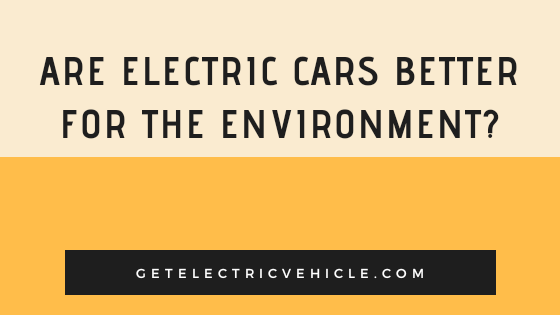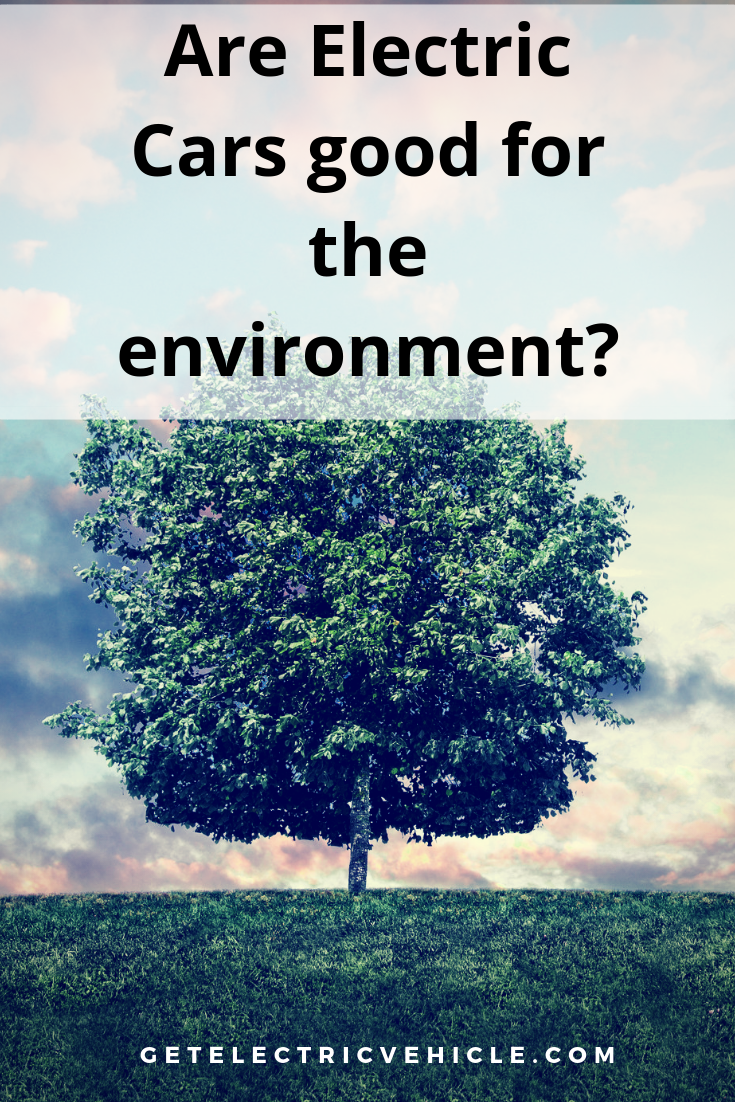
Ever since the evolution of electric vehicle, people started asking the question – Are electric cars good for the environment?
Electric Cars expect to replace conventional cars in the near future. The government tries to promote Electric Vehicles, manufacturers publish their plans on Electric Vehicle production.

Why would everyone think of Electric Cars? Now let’s think about battery electric vehicle which uses a battery as source energy. It’s a generic statement that Electric Vehicles are pollution free.
But is it the real fact? Are electric cars better for the environment?
We can look into this “simple but complicated” question from two perspectives
- Emission from the car when it runs
- Total pollution from the car in its entire life
Emission from a car when it runs
If someone says EVs are pollution free then it’s pretty sure that the person considers only the statistics of smoke emission in a running vehicle. Yeah, an electric car does not emit smoke as a petrol car does.
A petrol car emits about 404 grams of carbon dioxide per mile. In an average, it emits 4.6 metric ton carbon dioxide per year. (Source – Environmental Protection Agency USA).
Apart from carbon dioxide carbon monoxide, nitrogen dioxide, particulate mass, etc. emits through tailpipe of a car.

Emission from a battery electric car is zero. In a petrol car fuel is being burned in the car itself and it emits smoke. That is chemical energy in petrol is converted to mechanical energy.
In oppose to a petrol car, an electric car uses the energy stored in a battery that generated somewhere else (power stations, solar panels). Emission is zero at the vehicle. But generating station, especially thermal power stations, throw out a tremendous amount of polluting gases.
Electric Cars are almost zero emissive vehicle.
But does it answer the question “Are Electric cars good for environment?”
Total pollution from car in its life
An electric car is made up of body, battery, motor, wheels, auxiliaries (light, ac), etc. Each part of the car is constructed extracting materials from the environment. The process results in the environmental pollution in each stage.
Body of the vehicle is constructed using carbon steel or aluminum alloys. The process which refines bauxite – ore of aluminum – to yield pure aluminum is a highly energy-consuming process for which the energy is primarily getting from coal. Coal emits harmful greenhouse gases when it burns.
Similarly construction of Tyre, motor, battery, and all other components of vehicle pollutes the environment.
Once the life of components ends disposal also a big challenge. Sulphuric acid in lead-acid battery poisons water and causes severe health issues, lithium-ion batteries also cause environmental pollution.
So Electric vehicle pollutes the environment in the below three stages
Stage 1: Environmental pollution from an EV during Manufacturing
Environmental impacts during the manufacturing process of EV are comparable with a petrol car. The process to manufacture engine, exhaust systems, other body parts which are only in conventional vehicles reduce the environmental impacts. But battery manufacturing results in pollution in an electric vehicle building state.
Nickel and Lithium mining affects the ecosystem and pollutes the environment. Nickel mining polluted rivers in Russia and resulted in air pollution in Northern China.
Stage 2: Environmental pollution from an EV when it runs
Electric energy is stored in batteries and uses in EVs. At the vehicle, it does not emit any gases as petrol cars do. But electricity generating stations (thermal stations) emits polluting gases to the environment.
If electricity is being generated from renewable sources and hydropower plants then environmental pollution will be minimal.
Stage 3: Environmental pollution during disposal of electric vehicle
Disposal of aged vehicle, batteries, etc impacts the environment. Electric vehicle causes more pollution at this stage since battery chemical composition is injurious to health.
Cadmium, mercury, copper, zinc, etc. in an electric vehicle battery adversely affect the ecosystem. They are toxic metals which pollutes air and water. Health issues are the main result of battery disposal.

Are Electric Cars Good For the Environment?
Compared to petrol cars electric cars are environment-friendly. Zero air and noise pollution during operation keep Electric Cars a step ahead of petrol cars. Reduced noise pollution is the notable advantage of an electric vehicle.
Conclusion
Electric vehicles are green if they are considered as an isolated single entity. But the electricity generation, battery disposal, construction of the vehicle, etc. pollutes the environment and the vehicle is not green.
If electricity generation happens from renewable sources and hydropower stations, pollution at the source can also be reduced.
Thank you for your blog article.Really looking forward to read more. Will read on…
This is very informational. Thanks for sharing your informative article with us. Keep up the fantastic work.
TNR e vehicles industry provides the most sensational revolution in Electric Vehicles. Tnr Vehicle industry proves great features such as No license required, No registration required facilities to give you the driving experience.